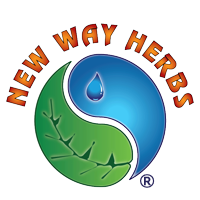4 Natural Solutions for Allergies and Hay Fever


Whether they flare up seasonally, or they are pervasive throughout the year, allergy episodes leave us feeling lethargic and irritable, at best. And it gets worse if those episodes lead to a sinus infection. While the rate of allergies has risen in recent years, many of us have resorted to allergy medications for relief and for longer periods of use.
Physically, we experience allergic reactions when a foreign substance, most commonly pollen or dander, invades our bodies. Our immune systems believe they are being compromised and respond by creating antibodies to fight off the attackers. The result is inflammation, swollen sinuses, headaches, skin reactions and often sinus infection.
While pharmaceutical allergy treatments are easily accessible and widely used, they are merely suppressing our symptoms temporarily, while making us drowsy and restless. And other side effects may occur with the use of decongestants, like an increase in blood pressure, headache, sleeplessness, and irritability. Long-term side effects of decongestants are unknown and long-term use of antihistamines may influence brain and liver function, while corticosteroids and leukotriene inhibitors have more insidious side effects.
The use of powerful corticosteroids, for topical allergic reactions, may cause several unwanted side-effects. When applied topically it can cause disturbance of the normal hormonal levels in the body.
When used in eye drops it may cause glaucoma, cataract formation and infection. Corticosteroids in Inhalers can cause irritation of the mucous membranes of the mouth and throat, as well as yeast infections of the mouth.
Oral corticosteroids cause still more severe side effects over the long term. They can result in stomach ulceration, cataract formation, osteoporosis, muscle weakness, hyperglycemia, delayed growth when used in children and increase blood pressure.
Leukotriene inhibitors are taken orally and inhibit inflammation-producing chemicals called leukotrienes. Side effects associated with these inhibitors include psychological side effects such as irritability. Anxiety, hallucinations, aggressive behavior, depression and suicidal ideation or behavior, and insomnia.
Unfortunately, environmental factors like climate change, overcrowding and, ironically, the insulated sterile surroundings we have created, all play an important role in creating a world where we are increasingly more likely to develop allergies to airborne allergens.
But here is the thing, allergies can be managed through natural methods. We don’t have to resort to 24-hour allergy pills and potent decongestants. Natural, safe methods, when combined with lifestyle changes and plant-based remedies, can relieve our symptoms will restoring our well-being without the disruptive side effects of pharmaceutical solutions.
Here are 4 herbal remedies you can explore as alternative solutions for allergies and hay fever:
Nettle Leaf is commonly found around the world. In plant form, its flat, heart shaped leaves induce a painful sting. But when consumed in tea or tincture, Nettle acts a natural antihistamine, modulating an immune response. This herb also inhibits some of the inflammatory processes that lead to allergic rhinitis and hay fever symptoms such as congestion and itchy skin. Some studies of those with allergic rhinitis symptoms, show a positive, equally effective response to their symptoms.
Fenugreek cleanses the bronchial passages and is a natural remedy for sore nasal passages and inflammation throughout the body. The sinuses are made of tissue lined with mucous membranes that help to prevent unwanted airborne particles from entering the body. Fenugreek cleanses the mucous membranes, helping the sinus cavity to properly drain excessive secretions.
Fenugreek tincture may also help restore normal blood flow to the nasal passages, thus alleviating nasal congestion and sinus pressure. It is a fine expectorant that relieves asthma congestion and is also good for coughs, colds and lung disorders. Fenugreek may also help dissolve hardened masses of accumulated mucus sometimes associated with tuberculosis.
Asthma Breathe Free is a very effective formula for the lungs and bronchioles. It helps to loosen mucous from the lungs, free the bronchioles and reduce inflammation. The formula contains Wild Cherry Bark, Skunk Cabbage, Elecampane Root, Spikenard Root, Black Cohosh Root, Comfrey Root, Horehound.
Allergy Relief Compound Formula: includes Bayberry Root Bark, Echinacea Root, Wild Cherry Bark, Yarrow Flower, Goldenseal Root, Cayenne Pepper This seasonal relief herbal formula is a combination of six herbs that are helpful in decreasing reactions to airborne substances. It is all natural, safe and effective in helping to promote respiratory health and a healthy immune system. It has been used effectively to clear airway passages, promote normal breathing and neutralize free radicals which can damage the body’s systems and allows the body to combat the things that are foreign to the body. This all-natural formula consists of herbs that promote a healthy respiratory system, no matter what the season brings.
Tags: allergy, allergy formula, antihistamine, Chamomile flower, corticosteroids, decongestants, echinacea, Echinacea Pupurea, hay fever, nettle, Peppermint, steroids
2 Comments
I have concerns with allergies in past always used holistic properties and they worked, Now I am 1/year post heart transplant and is it safe to take allergy relief compound with immune suppressants primary one is tacrolimus also take bactrium
Hello, Marcina, I am forwarding this to our Master Herbalist for her review..